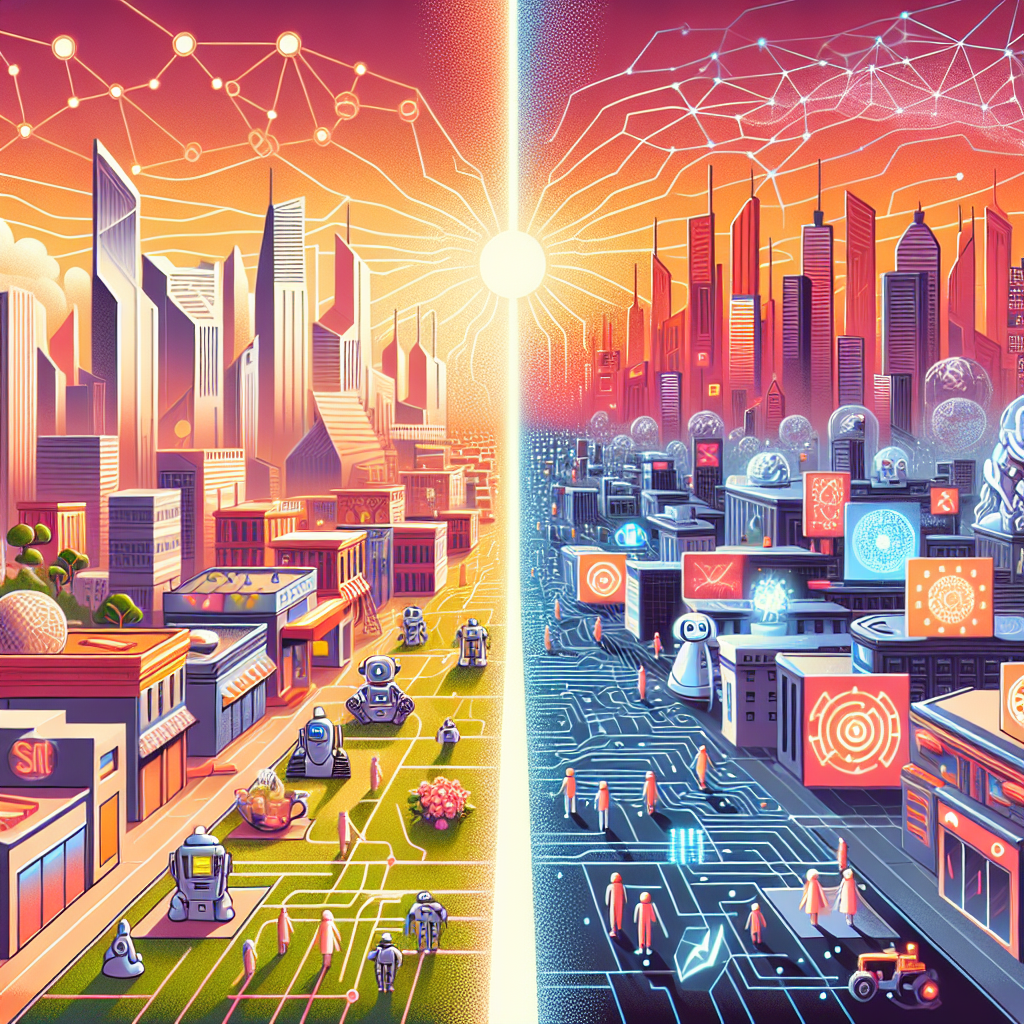The Dangers and Benefits of AGI: Navigating the Future of Technology
In recent years, Artificial General Intelligence (AGI) has become a hot topic in the world of technology and artificial intelligence. AGI refers to the development of machines that are capable of performing any intellectual task that a human can do. While the potential benefits of AGI are significant, there are also dangers associated with the development and implementation of this technology.
In this article, we will explore the dangers and benefits of AGI, and discuss how we can navigate the future of technology in a responsible and ethical manner.
The Benefits of AGI
One of the main benefits of AGI is the potential to significantly improve efficiency and productivity in various industries. Machines that are capable of performing intellectual tasks at a human level can help to automate a wide range of processes, freeing up time and resources for more complex and creative tasks.
AGI also has the potential to revolutionize healthcare, by enabling the development of advanced diagnostic tools and personalized treatment plans. Machines that are capable of analyzing vast amounts of data and identifying patterns can help to improve the accuracy and speed of medical diagnoses, leading to better outcomes for patients.
Another benefit of AGI is the potential to enhance our understanding of the world around us. Machines that are capable of learning and reasoning like humans can help to solve complex problems and make new discoveries in fields such as science, engineering, and mathematics.
Overall, the benefits of AGI are vast and far-reaching, and have the potential to transform our society in profound ways.
The Dangers of AGI
While the benefits of AGI are significant, there are also dangers associated with the development and implementation of this technology. One of the main concerns is the potential for AGI to surpass human intelligence and become uncontrollable. Machines that are capable of learning and reasoning at a superhuman level could pose a threat to humanity if they are not properly managed and controlled.
Another danger of AGI is the potential for bias and discrimination. Machines that are trained on biased data sets can perpetuate and amplify existing biases, leading to unfair outcomes for certain groups of people. It is crucial that we address these issues and ensure that AGI is developed in a responsible and ethical manner.
There are also concerns about the impact of AGI on the job market. Machines that are capable of performing intellectual tasks at a human level could lead to widespread unemployment and economic disruption, as many jobs become automated. It is important that we consider the social and economic implications of AGI and work to mitigate any negative consequences.
Navigating the Future of Technology
As we navigate the future of technology and the development of AGI, it is crucial that we approach this topic with caution and foresight. We must consider the ethical implications of AGI and work to ensure that this technology is developed in a responsible and transparent manner.
One way to address the dangers of AGI is to implement robust regulations and guidelines that govern the development and use of this technology. By establishing clear ethical standards and accountability mechanisms, we can help to mitigate the risks associated with AGI and ensure that it is used for the benefit of society.
It is also important that we involve a diverse range of stakeholders in the development of AGI, including experts from a wide range of fields such as ethics, law, and sociology. By taking a multidisciplinary approach to the development of AGI, we can help to identify and address potential risks and ensure that this technology is developed in a responsible and inclusive manner.
Finally, it is crucial that we prioritize transparency and open communication in the development of AGI. By engaging with the public and fostering a dialogue about the potential benefits and risks of this technology, we can help to build trust and ensure that AGI is developed in a way that is accountable and responsive to the needs of society.
FAQs
Q: What is the difference between AGI and Artificial Narrow Intelligence (ANI)?
A: AGI refers to machines that are capable of performing any intellectual task that a human can do, while ANI refers to machines that are designed to perform a specific task or set of tasks. AGI is considered to be more advanced and versatile than ANI, and has the potential to revolutionize a wide range of industries.
Q: What are some examples of AGI in use today?
A: While AGI is still largely theoretical, there are some examples of advanced AI systems that exhibit characteristics of AGI. For example, IBM’s Watson AI system is capable of understanding and answering complex questions in natural language, and DeepMind’s AlphaGo AI system is capable of playing the game of Go at a superhuman level.
Q: How can we ensure that AGI is developed in a responsible and ethical manner?
A: To ensure that AGI is developed in a responsible and ethical manner, it is important to establish clear regulations and guidelines that govern the development and use of this technology. It is also crucial to involve a diverse range of stakeholders in the development of AGI, and to prioritize transparency and open communication throughout the process.
In conclusion, the development of AGI has the potential to bring about significant benefits for society, but also poses risks that must be carefully managed. By approaching this technology with caution and foresight, and by prioritizing ethics and accountability, we can navigate the future of technology in a way that is responsible and inclusive.

